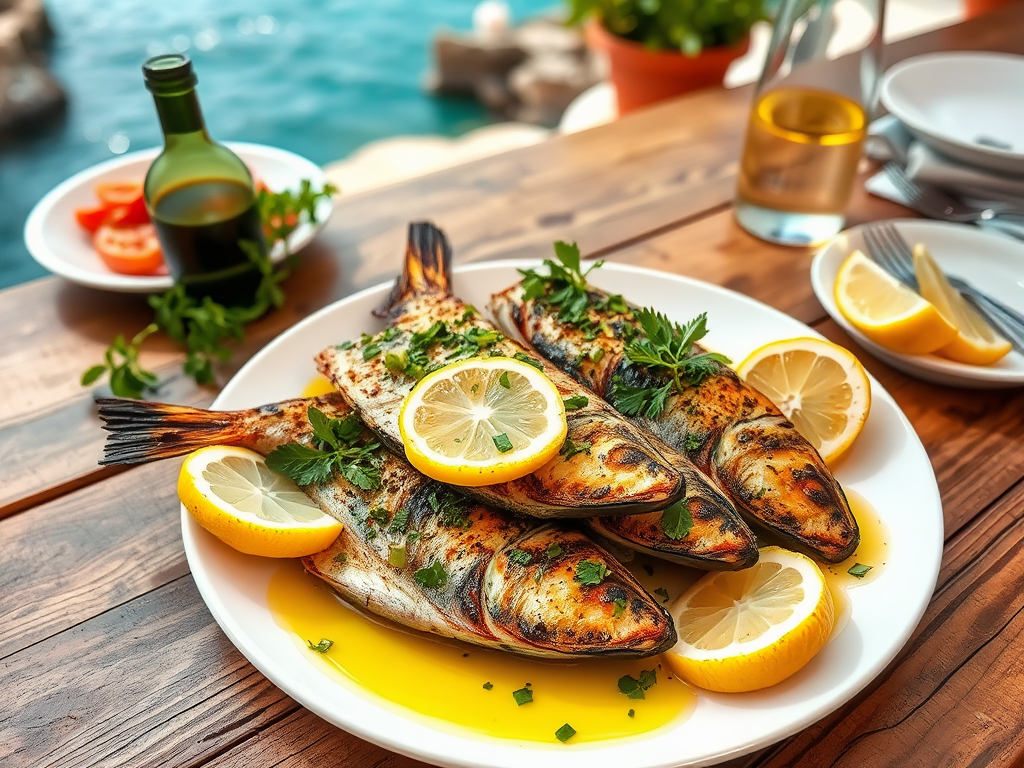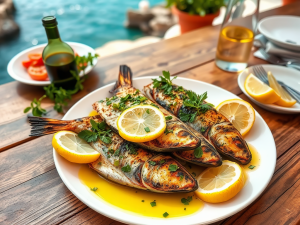
Introduction
Karpatzaki, a delightful dish hailing from the Dodecanese Islands of Greece, is a testament to the region’s rich culinary heritage. This dish combines fresh ingredients and traditional cooking methods, offering a unique taste of Greek culture. With its origins rooted in the local fishing communities, Karpatzaki has become a beloved specialty that captures the essence of the Aegean Sea.
Historical Background
The Dodecanese Islands, where Karpatzaki is most commonly prepared, have a long history of maritime trade and fishing. The islands’ strategic location made them a melting pot of various cultures, influencing local cuisine. Over the centuries, the locals developed a deep connection with the sea, leading to the creation of dishes like Karpatzaki that highlight the bounty of the waters.
Traditionally, fishermen would prepare the catch of the day using simple methods, showcasing the freshness of the fish. This practice has been passed down through generations, making Karpatzaki a cherished family recipe in many households.
Ingredients and Preparation
Key Ingredients
Karpatzaki primarily features:
- Fresh Fish: Local catches such as snapper, sea bass, or even smaller fish like sardines are commonly used. The choice of fish often depends on the season and availability.
- Olive Oil: A staple in Greek cuisine, high-quality extra virgin olive oil adds richness and depth of flavor to the dish.
- Herbs: Fresh herbs like oregano, dill, and parsley enhance the dish’s aroma and bring out the natural flavors of the fish.
- Lemon: A crucial ingredient, lemon juice adds brightness and acidity, balancing the richness of the fish and oil.
- Garlic: Sometimes included for an extra layer of flavor, garlic complements the other ingredients beautifully.
Cooking Method
- Preparation: The fish is cleaned and seasoned with salt and pepper. Herbs are often mixed with olive oil to create a marinade.
- Grilling: Traditionally, the fish is grilled over an open flame or charcoal, which imparts a distinctive smoky flavor. Cooking time varies depending on the size of the fish, typically around 10-15 minutes per side.
- Serving: Once cooked, the fish is drizzled with olive oil and fresh lemon juice. It is often garnished with additional herbs and served with sides like roasted vegetables, a fresh Greek salad, or crusty bread.

Cultural Significance
Karpatzaki is more than just a dish; it represents the communal spirit of Greek dining. Traditionally, it is enjoyed during family gatherings, holidays, and festivals, symbolizing hospitality and togetherness. Sharing a meal of Karpatzaki with friends and family fosters a sense of connection and appreciation for the simple joys of life.
The preparation and enjoyment of Karpatzaki can also be seen as a celebration of the Mediterranean lifestyle, emphasizing fresh, seasonal ingredients and the pleasure of cooking from scratch. In many coastal villages, it is common for families to gather on weekends to grill fish, making it a cherished tradition.
Modern Variations
While the traditional recipe remains beloved, modern chefs have begun to experiment with Karpatzaki, incorporating new flavors and techniques. Some variations include:
- Spicy Marinades: Adding chili or paprika for a kick.
- Stuffed Versions: Filling the fish with a mixture of herbs, breadcrumbs, and nuts before grilling.
- Alternative Cooking Methods: Some opt for baking or pan-searing, allowing for different textures and flavors.
These adaptations reflect the evolving nature of Greek cuisine while honoring its roots.
Conclusion
Karpatzaki is a delicious reflection of Greece’s culinary traditions, showcasing the importance of fresh ingredients and communal dining. Its rich history, combined with the simplicity of its preparation, makes it a dish that resonates with both locals and visitors alike. Whether enjoyed on a sun-soaked terrace overlooking the Aegean Sea or at a lively family gathering, this dish is sure to delight anyone who experiences it.
As you savor the flavors of Karpatzaki, you are not just tasting a meal; you are partaking in a cultural experience that celebrates the beauty of Greek hospitality and the bounty of the sea. So, gather your loved ones, fire up the grill, and enjoy this culinary gem that has captured hearts for generations.



